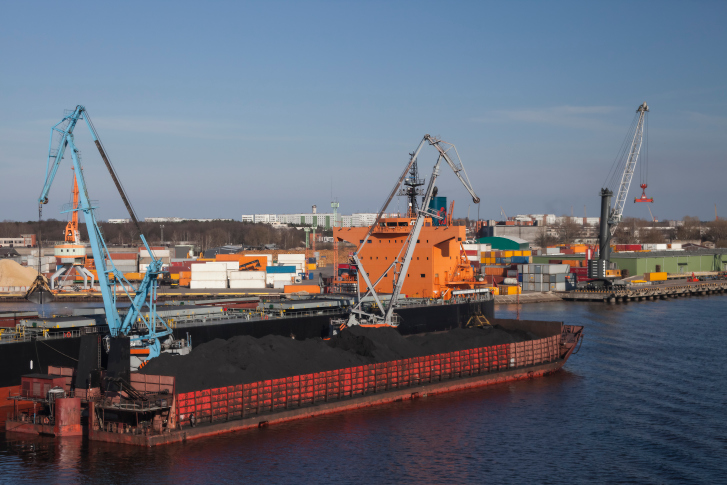California Attorney General Xavier Becerra has lost the latest bid by public officials in the state to block shipments of coal through the Oakland Bulk and Oversized Terminal (OBOT).
Becerra gambled and lost, betting if the state of California joined Oakland in opposing the shipment of coal through the terminal, the Ninth Circuit Court of Appeals would overturn a district court’s ruling as well as its own, which decided Oakland could not bar shipments of coal through the city to the terminal for export.
Terminal Contract Upheld
The city of Oakland approved Phil Tagami’s development of the $250 million OBOT, located on Oakland’s outer harbor, in 2013. Tagami subsequently signed a contract with Utah coal producers in which they would transport their product by rail to OBOT to be shipped overseas. In July 2016, in an attempt to block coal shipments to and from the terminal, Oakland’s city council voted unanimously to prohibit the storing and handling of coal within city limits.
Tagami filed a federal lawsuit in the U.S. District Court for the Northern District of California in 2016, arguing Oakland’s ordinance violated his agreement with the city to develop the land.
U.S. District Judge Vince Chhabria heard the case and ruled in Tagami’s favor, finding Oakland’s action amounted to an illegal breach of contract.
The city’s justification for the ban was “riddled with inaccuracies, major evidentiary gaps, erroneous assumptions, and faulty analyses, to the point that no reliable conclusion about health or safety dangers could be drawn from it,” Chhabria wrote.
Oakland appealed Chhabria’s decision to the U.S. Ninth Circuit Court of Appeals in San Francisco in 2018, only to have the majority of a three judge panel of the Appeals Court hearing the case affirm the ruling.
“In affirming, we do not opine on the ultimate issue of any alleged health or safety impact of OBOT’s proposed plan,” wrote U.S. Circuit Judge Kenneth Lee, in his majority opinion. “Nor do we judge the economic or environmental merits of the agreement to develop a commercial terminal that may house and transport coal.
“Rather, we affirm … the district court’s bench trial ruling that Oakland breached the agreement,” Lee ruled.
The District and Appeals Courts rulings were well-founded in the law, Tagami said in a statement issued after the Appeals Court’s decision in May.
“The district court issued a thorough, thoughtful and comprehensive ruling invalidating the city’s action,” Tagami stated. “We remained confident that the Ninth Circuit would uphold that ruling, which they now have.”
California Jumps In, Denied
The latest action in the case came when Becerra appealed to the Ninth Circuit to reopen OBOT vs. The City of Oakland, allowing the state to intervene on Oakland’s behalf, either in a rehearing before the three original judge panel or before an en banc hearing of the full court.
On August 3, a majority of the three-judge panel denied Becerra’s appeal for a rehearing by the panel with additional arguments to be made by the AG’s office, and recommended against an en banc hearing by the full court.
The federal appeals court denied Becerra’s request for a hearing before the full court, writing in its August 3 docket, “The full court has been advised of the suggestion for rehearing en banc, and no judge has requested a vote on whether to rehear the matter en banc. … The petition for panel rehearing and the petition for rehearing en banc are therefore DENIED.”
Oakland’s recourse at this point if they wish to prevent coal shipments from the OBOT terminal is to appeal their case the U.S. Supreme Court and win there, or to negotiate a settlement with Tagami that satisfies the developer and the Utah coal producers.
Attorneys for OBOT have filed a lawsuit against Oakland, seeking to be awarded court costs and damages for the delays created by the lawsuit.
“Now, after all this time and continued rejection by the federal courts, I would hope there is a responsible city official with whom OBOT can sit down and resolve its differences,” said Robert Feldman, of law firm Quinn Emanuel Urquhart & Sullivan, the lead attorney for OBOT, in a statement.
Sterling Burnett, Ph.D. (hsburnett@heartland.org) is a senior fellow at The Heartland Institute.
